Holiday Gift Guide 2024: New Books by UC Berkeley Authors
From an exploration on how to make sense in a world of nonsense to an examination of the American sitcom, the subjects of this year’s books are expansive — a reflection of our dynamic and diverse campus.
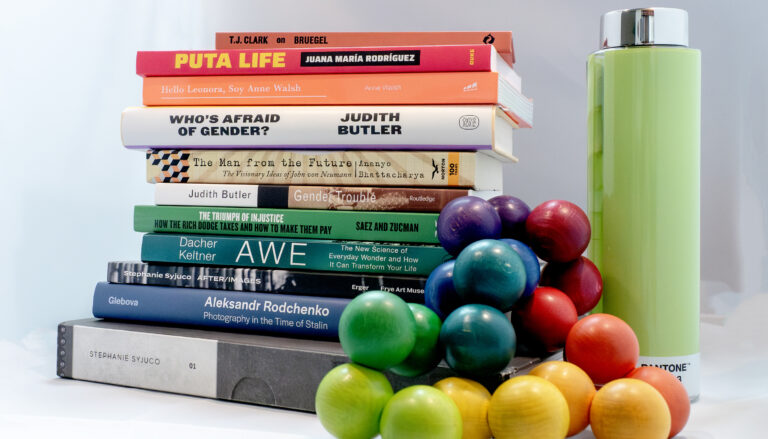
Like last year, we’ve decided to dedicate our 2024 holiday gift guide to sharing new books by members of the UC Berkeley community. Books about an immigrant’s struggle in the fictitious empire of Norio, a real-life injured aquifer, making sense in a world of nonsense and representations of sexuality in the American sitcom are among more than 40 new works by UC Berkeley authors to celebrate — and to gift — this holiday season.
Holiday events and pop-up shops on campus are also plentiful this season, so visit UC Berkeley’s events calendar to peruse a range of offerings, from wreath-making workshops to handmade goods crafted by local artisans.
The Dream-Slaves by Darieck Scott, professor of African American studies
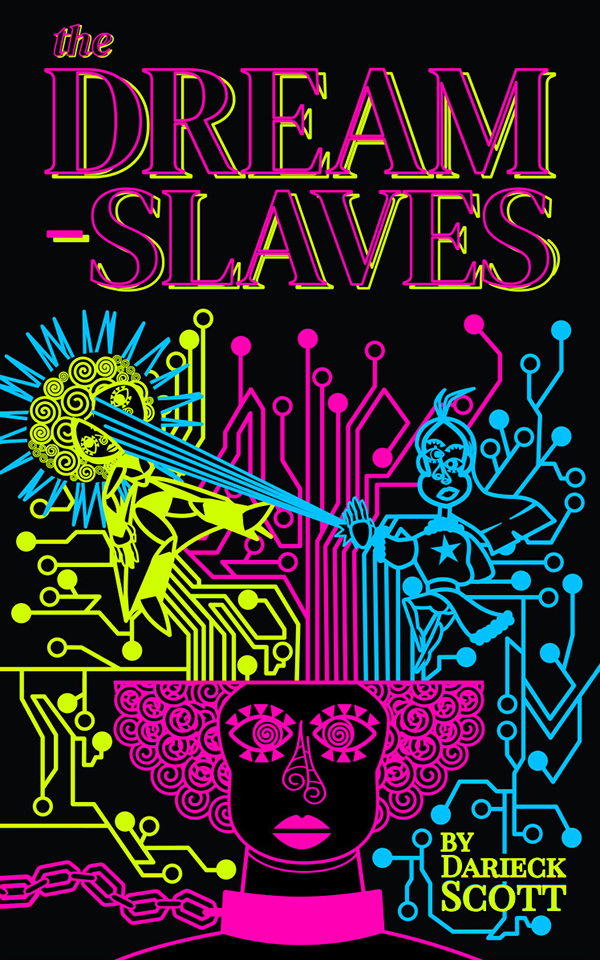 From Punctum Books: “Our universe is dead. All that’s left are memories. But the powers indigenous to the new world are fighting back.
From Punctum Books: “Our universe is dead. All that’s left are memories. But the powers indigenous to the new world are fighting back.
“Alexander, a handsome immigrant fleeing trouble in his poor native land, doesn’t even have a claim to his own name in the magic-rich city of Norio, where they call him Aleixo. But his name may be the least of what the sorcerers of Norio take from him, when a seemingly random invitation to cater-waiter at a party of the wealthy and famous sweeps Aleixo up into a maelstrom of imperial politics and a millennia-long war between humans and gods. The empire of Norio rules the world because of its monopoly on magical high-tech devices called dream-slaves — and now the head of imperial intelligence has proof that Aleixo isn’t human at all, but a dream-slave assassin, smuggled into Norio by the empire’s enemies.”
Disabled Ecologies: Lessons from a Wounded Desert by Sunaura Taylor, assistant professor in the Department of Environmental Science, Policy and Management
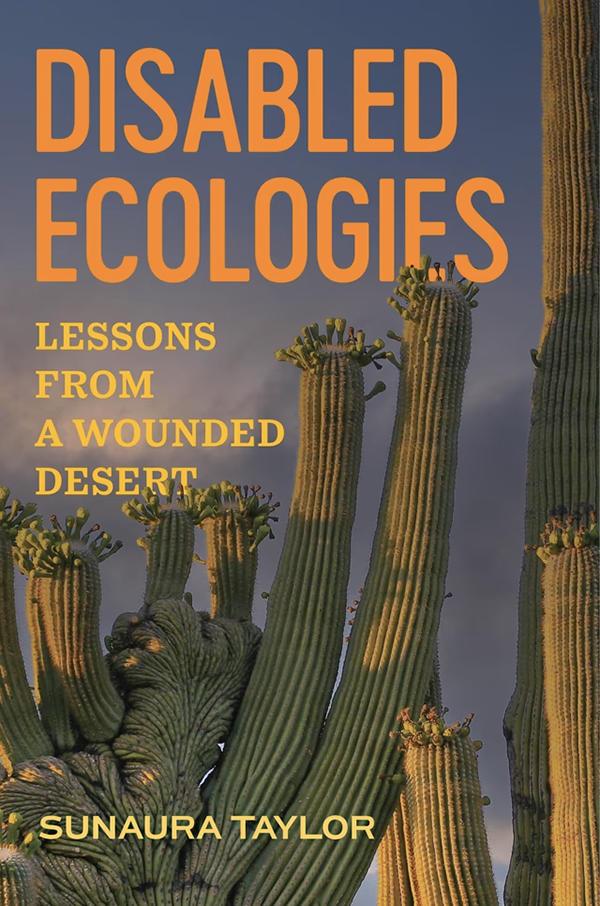 From University of California Press: “Deep below the ground in Tucson, Arizona, lies an aquifer forever altered by the detritus of a postwar Superfund site. Disabled Ecologies tells the story of this contamination and its ripple effects through the largely Mexican American community living above. Drawing on her own complex relationship to this long-ago injured landscape, Sunaura Taylor takes us with her to follow the site’s disabled ecology — the networks of disability, both human and wild, that are created when ecosystems are corrupted and profoundly altered.”
From University of California Press: “Deep below the ground in Tucson, Arizona, lies an aquifer forever altered by the detritus of a postwar Superfund site. Disabled Ecologies tells the story of this contamination and its ripple effects through the largely Mexican American community living above. Drawing on her own complex relationship to this long-ago injured landscape, Sunaura Taylor takes us with her to follow the site’s disabled ecology — the networks of disability, both human and wild, that are created when ecosystems are corrupted and profoundly altered.”
Also, read a UC Berkeley News Q&A with Taylor: Can an aquifer be injured? Scholar brings a disability lens to ecological repair
An Artificial History of Natural Intelligence: Thinking with Machines from Descartes to the Digital Age by David Bates, professor of rhetoric
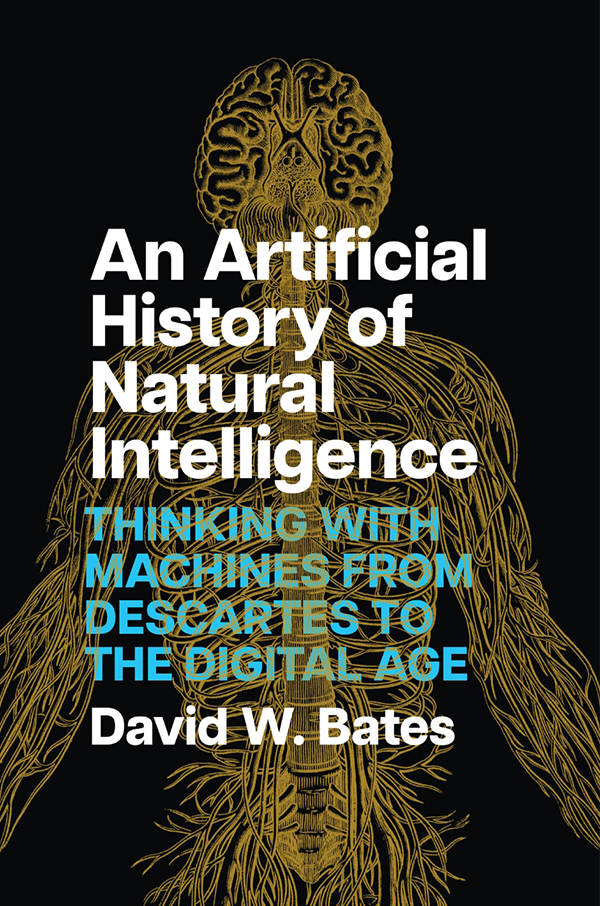 From University of Chicago Press: “We imagine that we are both in control of and controlled by our bodies — autonomous and yet automatic. This entanglement, according to David W. Bates, emerged in the seventeenth century when humans first built and compared themselves with machines. Reading varied thinkers from Descartes to Kant to Turing, Bates reveals how time and time again technological developments offered new ways to imagine how the body’s automaticity worked alongside the mind’s autonomy. Tracing these evolving lines of thought, An Artificial History of Natural Intelligence offers a new theorization of the human as a being that is dependent on technology and produces itself as an artificial automaton without a natural, outside origin.”
From University of Chicago Press: “We imagine that we are both in control of and controlled by our bodies — autonomous and yet automatic. This entanglement, according to David W. Bates, emerged in the seventeenth century when humans first built and compared themselves with machines. Reading varied thinkers from Descartes to Kant to Turing, Bates reveals how time and time again technological developments offered new ways to imagine how the body’s automaticity worked alongside the mind’s autonomy. Tracing these evolving lines of thought, An Artificial History of Natural Intelligence offers a new theorization of the human as a being that is dependent on technology and produces itself as an artificial automaton without a natural, outside origin.”
Not So Sorry: Abusers, False Apologies, and the Limits of Forgiveness by Kaya Oakes, senior continuing lecturer for the campus’s College Writing Programs
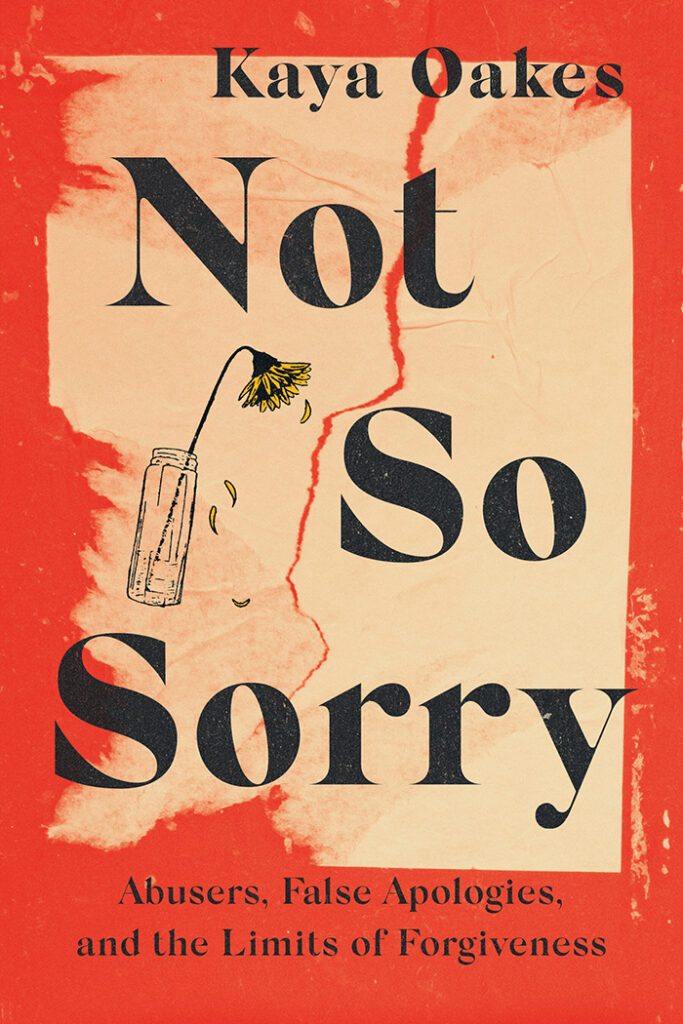 From Broadleaf Books: “From religious communities to therapeutic spaces, the importance of forgiving those who’ve wronged us is often enshrined as an unqualified good. But what about horrifying cases of abuse, predatory behavior, or systemic wrong? Too often, when predators or abusers are exposed, the chorus comes immediately: ‘What about forgiveness?’ In these cases, forgiveness places the onus on victims, diminishes real hurt and anger, lets perpetrators off the hook, and prevents justice from being done. … Ultimately, Oakes dares us to ask the necessary question: Is it ever better not to forgive?”
From Broadleaf Books: “From religious communities to therapeutic spaces, the importance of forgiving those who’ve wronged us is often enshrined as an unqualified good. But what about horrifying cases of abuse, predatory behavior, or systemic wrong? Too often, when predators or abusers are exposed, the chorus comes immediately: ‘What about forgiveness?’ In these cases, forgiveness places the onus on victims, diminishes real hurt and anger, lets perpetrators off the hook, and prevents justice from being done. … Ultimately, Oakes dares us to ask the necessary question: Is it ever better not to forgive?”
Sin Padres, Ni Papeles: Unaccompanied Migrant Youth Coming of Age in the United States by Stephanie L. Canizales, professor of sociology
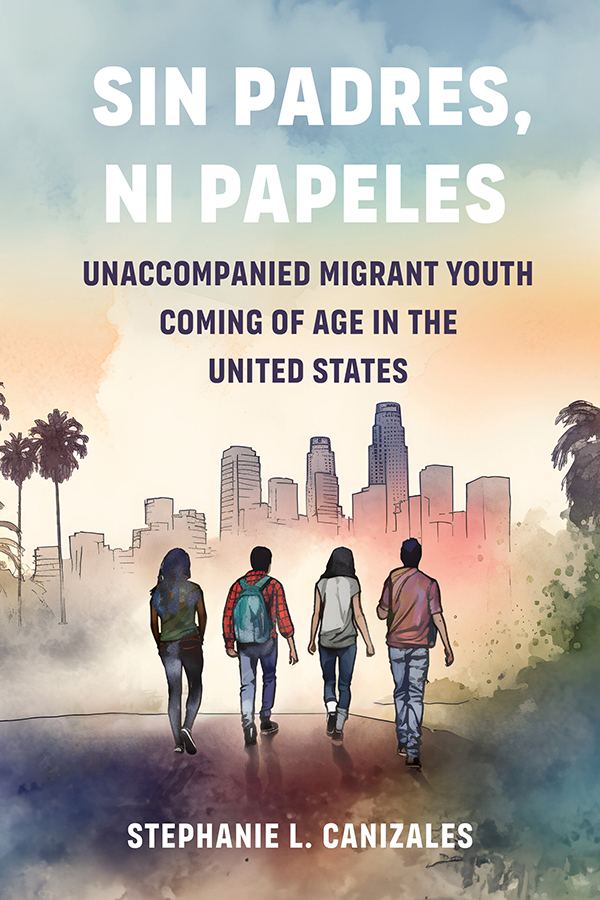 From University of California Press: “Each year, thousands of youth endure harrowing unaccompanied and undocumented migrations across Central America and Mexico to the United States in pursuit of a better future. Drawing on the firsthand narratives of migrant youth in Los Angeles, California, Stephanie L. Canizales shows that while a lucky few do find reprieve, many are met by resource-impoverished relatives who are unable to support them, exploitative jobs that are no match for the high cost of living, and individualistic social norms that render them independent and alone. Sin Padres, Ni Papeles illuminates how unaccompanied teens who grow up as undocumented low-wage workers navigate unthinkable material and emotional hardship, find the agency and hope that is required to survive, and discover what it means to be successful during the transition to adulthood in the United States.”
From University of California Press: “Each year, thousands of youth endure harrowing unaccompanied and undocumented migrations across Central America and Mexico to the United States in pursuit of a better future. Drawing on the firsthand narratives of migrant youth in Los Angeles, California, Stephanie L. Canizales shows that while a lucky few do find reprieve, many are met by resource-impoverished relatives who are unable to support them, exploitative jobs that are no match for the high cost of living, and individualistic social norms that render them independent and alone. Sin Padres, Ni Papeles illuminates how unaccompanied teens who grow up as undocumented low-wage workers navigate unthinkable material and emotional hardship, find the agency and hope that is required to survive, and discover what it means to be successful during the transition to adulthood in the United States.”
Apartheid Remains by Sharad Chari, associate professor of geography
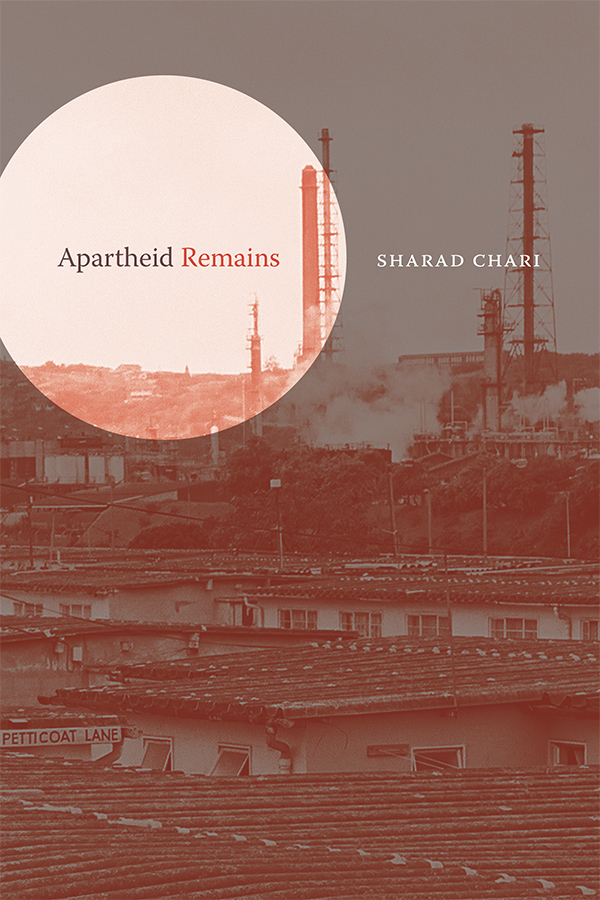 From Duke University Press: “In Apartheid Remains, Sharad Chari explores how people handle the remains of segregation and apartheid in South Africa as witnessed through portals in an industrial-residential landscape in the Indian Ocean city of Durban. Through long-term historical and ethnographic research, Chari portrays South Africa’s 20th century as a palimpsest that conserves the remains of multiple pasts, including attempts by the racial state to remake territory and personhood while instead deepening spatial contradictions and struggles.”
From Duke University Press: “In Apartheid Remains, Sharad Chari explores how people handle the remains of segregation and apartheid in South Africa as witnessed through portals in an industrial-residential landscape in the Indian Ocean city of Durban. Through long-term historical and ethnographic research, Chari portrays South Africa’s 20th century as a palimpsest that conserves the remains of multiple pasts, including attempts by the racial state to remake territory and personhood while instead deepening spatial contradictions and struggles.”
Stephanie Syjuco: The Unruly Archive by Stephanie Syjuco, associate professor in the Department of Art Practice
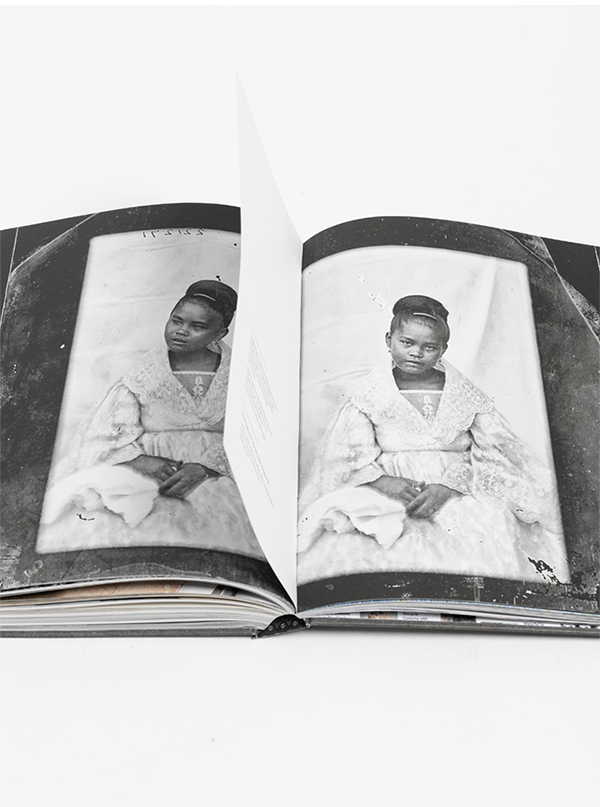 From Radius Books: “Stephanie Syjuco: The Unruly Archive is the artist’s first monograph, weaving together her research-based practice with a substantial array of visual source material. Bound in a unique format with different types of paper, the pages are cut and layered to simulate the process of physically excavating folders in an archive.
From Radius Books: “Stephanie Syjuco: The Unruly Archive is the artist’s first monograph, weaving together her research-based practice with a substantial array of visual source material. Bound in a unique format with different types of paper, the pages are cut and layered to simulate the process of physically excavating folders in an archive.
“In Syjuco’s own words, the book is ‘a type of forensics … what it is like to piece together a vision of an entire country and people — the Philippines, Filipinos, and by extension, Filipinx Americans — through the lens of the American colonial archive.’ By examining the blind spots, holes, and fragments of these collections, she examines the ways photography, anthropology, and national archives produce and proliferate images of exclusion and cultural Othering.”
Also, check out: Stephanie Syjuco: After/Images, Syjuco’s first monograph, which accompanies a solo exhibition of her recent lens-based artworks.
Closures: Heterosexuality and the American Sitcom by Grace Lavery, associate professor of English
 From Duke University Press: “From The Mary Tyler Moore Show to Arrested Development to BoJack Horseman, the American sitcom revolves around crises that must be resolved by episode’s end, with a new crisis to come next week. In Closures, Grace Lavery reconsiders the genre’s seven-decade history as an endless cycle of crisis and closure that formally and representationally frames heterosexuality as constantly on the verge of both collapse and reconstitution. She shows that even the normiest family-based sitcoms rely on queer characters like Alice (The Brady Bunch) and Steve Urkel (Family Matters) who highlight how the family is perpetually incomplete and unstable.”
From Duke University Press: “From The Mary Tyler Moore Show to Arrested Development to BoJack Horseman, the American sitcom revolves around crises that must be resolved by episode’s end, with a new crisis to come next week. In Closures, Grace Lavery reconsiders the genre’s seven-decade history as an endless cycle of crisis and closure that formally and representationally frames heterosexuality as constantly on the verge of both collapse and reconstitution. She shows that even the normiest family-based sitcoms rely on queer characters like Alice (The Brady Bunch) and Steve Urkel (Family Matters) who highlight how the family is perpetually incomplete and unstable.”
The Power of Bridging: How To Build A World Where We All Belong by john a. powell, director of the Othering and Belonging Institute and professor of law
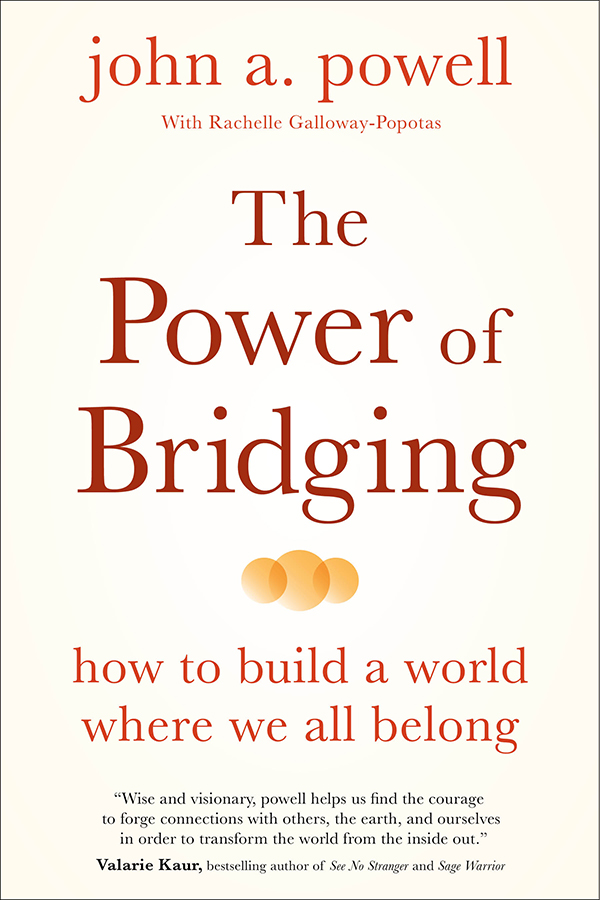 From Stanford University Press: “We all yearn for connection and community, but we live in a time when calls for further division along the well-wrought lines of religion, race, ethnicity, caste, and sexuality are pervasive. This ubiquitous yet elusive problem feeds on fears – created, inherited – of the ‘other.’ While the much-touted diversity, equity, and inclusion initiatives are undeniably failing, and activists narrowly focus on specific and sometimes conflicting communities, Belonging without Othering prescribes a new approach that encourages us to turn toward one another in unprecedented and radical ways.”
From Stanford University Press: “We all yearn for connection and community, but we live in a time when calls for further division along the well-wrought lines of religion, race, ethnicity, caste, and sexuality are pervasive. This ubiquitous yet elusive problem feeds on fears – created, inherited – of the ‘other.’ While the much-touted diversity, equity, and inclusion initiatives are undeniably failing, and activists narrowly focus on specific and sometimes conflicting communities, Belonging without Othering prescribes a new approach that encourages us to turn toward one another in unprecedented and radical ways.”
Also, check out Belonging Without Othering: How We Save Ourselves and the World by powell and Stephen Menendian, research director of the Othering and Belonging Institute, and Flourishing Kin: Indigenous Wisdom for Collective Well-Being by Yuria Celidwen, senior fellow at the institute.
The Good War by Elizabeth Costello, principal editor and media relations lead, University Development and Alumni Relations
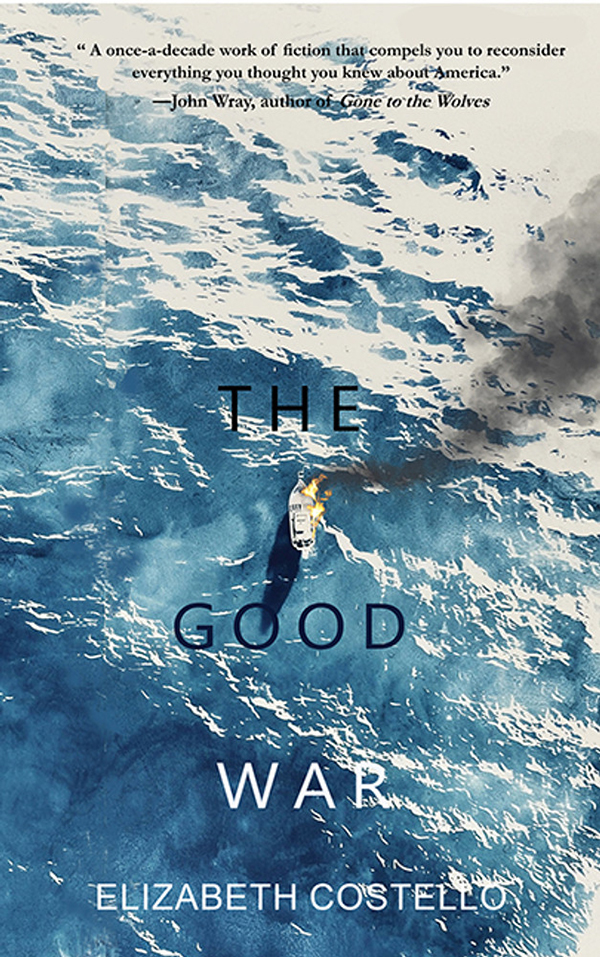 From Regal House Publishing: “In 1948, Louise Galle, a chemist and former Rosie-the-Riveter, is pursued by a wounded veteran who, with her deceased husband, was a prisoner in the Philippines during World War II. In New York City in 1964, Louise’s daughter Charlotte falls for the butch next door and receives an undeniable call to make art. The Good War unfolds over the course of watershed summers in the lives of two very different women who share a desire to make it new even as they reckon with painful truths. Atmospheric, lyrical, and psychologically astute, The Good War is for anyone who knows that there is always more to the story of what America was and is.”
From Regal House Publishing: “In 1948, Louise Galle, a chemist and former Rosie-the-Riveter, is pursued by a wounded veteran who, with her deceased husband, was a prisoner in the Philippines during World War II. In New York City in 1964, Louise’s daughter Charlotte falls for the butch next door and receives an undeniable call to make art. The Good War unfolds over the course of watershed summers in the lives of two very different women who share a desire to make it new even as they reckon with painful truths. Atmospheric, lyrical, and psychologically astute, The Good War is for anyone who knows that there is always more to the story of what America was and is.”
Other new books by UC Berkeley authors
Department of Comparative Literature
- Reading Greek Tragedy with Judith Butler by Mario Telò, professor of ancient Greek and Roman studies, rhetoric and comparative literature. Telò also co-edited Niobes: Antiquity, Modernity, Critical Theory.
- Who’s Afraid of Gender? by Judith Butler, Distinguished Professor in the Graduate School and former Maxine Elliot Chair of the Department of Comparative Literature
Department of English
- Highway Thirteen: Stories by Fiona McFarlane, associate professor of English
- Near-Earth Object (poetry) by John Shoptaw, senior continuing lecturer of English
- Odd Affinities: Virginia Woolf’s Shadow Genealogies by Elizabeth Abel, professor and John F. Hotchkis Chair in English
College of Environmental Design
- Breaking the Bronze Ceiling: Women, Memory, and Public Space, co-edited by Andrew Shanken, professor of architecture
- The Equitably Resilient City: Solidarities and Struggles in the Face of Climate Crisis, co-written by Zachary Lamb, assistant professor of city and regional planning
- Heterogeneous Constructions: Studies in Mixed Material Architecture, co-written by Yasmin Vobis, assistant professor of architecture, and Aaron Forrest, associate adjunct professor of architecture
- The African Ancestors Garden: History and Memory at the International African American Museum by Walter Hood, professor of landscape architecture and environmental planning and of urban design
Department of Environmental Policy, Science and Management
- Sweet Deal, Bitter Landscape: Gender Politics and Liminality in Tanzania’s New Enclosures by Youjin B. Chung, assistant professor in the Energy and Resources Group and in the Department of Environmental Science, Policy and Management
- Toxic Water, Toxic System: Environmental Racism and Michigan’s Water War by Michael Mascarenhas, professor in the Department of Environmental Science, Policy and Management
Department of Ethnic Studies
- Native Lands: Culture and Gender in Indigenous Territorial Claims by Shari Huhndorf, professor of Native American studies and of comparative ethnic studies
Department of French
- Historical and Sociolinguistic Approaches to French, co-edited by Mairi-Louise McLaughlin
- The Oxford Handbook of the French Language, co-edited by Mairi-Louise McLaughlin
Department of German
- Historical Turns: Weimar Cinema and the Crisis of Historicism by Nicholas Baer, assistant professor of German. Baer also co-edited Technics: Media in the Digital Age.
Goldman School of Public Policy
- Career Journeys of Diverse Leaders in Higher Education, co-edited by Josefina Castillo Baltodano, senior associate of external relations for the Center for Studies in Higher Education
Department of History of Art
- Eclipse and Revelation: Total Solar Eclipses in Science, History, Literature, and the Arts, co-edited by Henrike Lange, associate professor of the history of art and of Italian studies
- T. J. Clark on Bruegel by T.J. Clark, professor emeritus of the history of art
School of Law
- Taking Privacy Seriously: How to Create the Rights We Need While We Still Have Something to Protect by James B. Rule, distinguished affiliated scholar at the Center for the Study of Law and Society
Middle Eastern Languages and Cultures
- ‘Ethiopia’ and the World, 330–1500 CE by Yonatan Binyam, assistant professor of ancient Mediterranean and Ethiopic studies
Department of Physics
- Third Millennium Thinking: Making Sense in a World of Nonsense, co-written by Saul Perlmutter, Nobel laureate and professor of physics, and John Campbell, professor of philosophy
Department of Political Science
- The State, Ethnicity, and Gender in Africa: Intellectual Legacies of Crawford Young, co-edited by Scott Straus, chair and professor of political science
Department of Psychology
- Fundamentals of Developmental Cognitive Neuroscience, co-written by Silvia Bunge, professor of psychology
Department of Rhetoric
- Nietzsche and Literary Studies by James Porter, Irving Stone Professor in Literature and distinguished professor of rhetoric
Department of Sociology
- Racial Domination by Loïc Wacquant, professor of sociology
- Stolen Pride: Loss, Shame, and the Rise of the Right by Arlie Hochschild, professor emerita of sociology
- The Ordinal Society co-written by Marion Fourcade, professor of sociology
If we missed a book published in 2024 by a current Berkeley faculty or staff member, student or visiting scholar who you think should be on the list, email me at abrice@berkeley.edu and our team will do its best to include it. Thanks very much!
